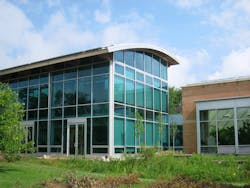Oberlin College to hold conference on post-fossil fuel economy
By Peter Fabris, Contributing Editor
Oberlin College is hosting a major climate change conference called After Fossil Fuels: The Next Economy on Oct. 6-8.
Over 40 luminaries in the field of climate change and economic opportunities in the post-fossil fuel economy will speak at the Ohio college. Among them will be former governors Arnold Schwarzenegger of California, Bill Ritter of Colorado, and Jennifer Granholm of Michigan.
Also making presentations will be Michael Brune, President of the Sierra Club; Tom Steyer, founder of NexGen Climate; Mark Campanale, founder and director of the Carbon Tracker Initiative; Hunter Lovins, founder of Natural Capitalism Solutions; and Gus Speth, co-chair of the Next System Project.
“Climate and energy issues are flip sides of the same coin,” said says David W. Orr, the Paul Sears Distinguished Professor of Environmental Studies and Politics at Oberlin College. “We are now in the transition to a very different economy and we don’t have a lot of time to get this right.”
